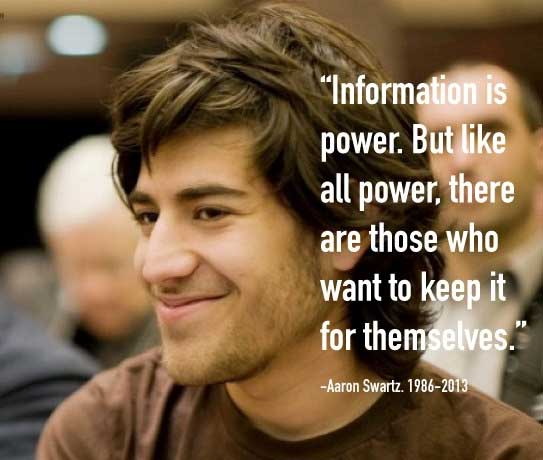Update Terbaru BLUE.. Pada Article Hari Ini Penulis Akan Memberi Anda Cerita Yang Amat Menarik Hari Ini . Jadi Mari Kita Mula Membaca.
One of the ways in which religions have managed to control their followers is by controlling their sexuality, telling them what's allowed, what's forbidden, what they can be punished for eternally, what the purpose of sex is, and so on. And for a very long time, religions managed to do this quite well, primarily because they also controlled the means of indoctrination and communication, but then modernity and education happened...
Few events have shocked the church quite the way the introduction of the anti-contraceptive pill did because, for the first time in history, sexuality became democratized and people finally had some control over their own reproduction, control that had previously been the dominion of the church.
With the sexual revolution of the sixties, and the general secularization of the zeitgeist over the last few centuries, orthodox traditional religious restrictions on sexuality (like their adherence to natural law theory and its injunctions against birth control, abortion and homosexuality), though still strongly supported by church officials, have been mainly ignored by the faithful, and the church has lost its grip on the conscience and soul of its constituents.
But is sex only about physical gratification, or is there some important spiritual component to it over which the church really ought to have something to say? Or can such components be achieved without it? Does the very idea of sex as metaphorical forbidden fruit enhance the sexual experience? Are atheists missing out?
And check out a brief summary of the history of the church and child sexual abuse.
Or check out the Unnatural History of Sex (The Revolution and Love).
Bagaimana Menarikkan Article Pada Hari Ini . BLUE.Jangan Lupa Datang Lagi Untuk Membaca Article Yang lebih Menarik Pada Masa Akan Datang/
Beranda
»
Atheism
»
documentary
»
ethics
»
history
»
religion
»
Sex
»
The Human Sexes
» Sex: An Unnatural History - The Church
Related Posts
 Julie Sedivy - The Unusual Language That Linguists Thought Couldn’t Exist (via Nautilus)
Julie Sedivy - The Unusual Language That Linguists Thought Couldn’t Exist (via Nautilus)This is a very interesting article from Julie Sedivy at Nautilus that riffs on another article from[...]
 What’s it Like to Experience and Recover from Psychosis?
What’s it Like to Experience and Recover from Psychosis?Interesting little film . . . and here is the filmmaker's "spiel" about his work: After ten months [...]
This story is a tragedy, in my opinion. Aaron Swartz was being made an example of for having embarrassed the government on a couple of occasions. Even the case for which charges were finally brought did not cause any financial harm to his target (JSTOR), who urged the government to drop the charges. The Feds refused - Swartz's conviction would serve as a warning. Instead, the young man hanged himself in his NYC apartment.
Here is a key passage that explains why so many of us supported Swartz's "work":Swartz’s manifesto didn’t just call for the widespread illegal downloading and sharing of copyrighted scientific and academic material, which was already a dangerous idea. It explained why. Much of the academic research held under lock and key by large institutional publishers like Reed Elsevier had been largely funded at public expense, but was now being treated as private property – and as Swartz understood, that was just one example of a massive ideological victory for corporate interests that had penetrated almost every aspect of society. The actual data theft for which Swartz was prosecuted, the download of a large volume of journal articles from the academic database called JSTOR, was largely symbolic and arguably almost pointless. (As a Harvard graduate student at the time, Swartz was entitled to read anything on JSTOR.)
Academic publishers like Reed Elsevier, JSTOR, Science Direct, Nature, Hindawi, Springer, and others control nearly all of the published research in nearly every field, much of which is funded by tax dollars either directly or indirectly.
These publishers then charge authors hundreds [sometimes thousands] of dollars to publish, and charge more if the author wants open access; they charge for images in articles; they charge libraries hundreds of dollars for subscriptions, even digital subscriptions; and they try to charge consumers (like me) between $30 and $70 for use of an article (often on 24 hours).
Anyway, first up here is a review of the film and the life of its subject, via Salon, followed by an open access version of the film from Open Culture.“The Internet’s Own Boy”: How the government destroyed Aaron Swartz
A film tells the story of the coder-activist who fought corporate power and corruption -- and paid a cruel price
Andrew O'Hehir | Tuesday, Jun 24, 2014
The Internet’s Own Boy: The Story of Aaron Swartz - New Documentary Is Free Online This story is a tragedy, in my opinion. Aaron Swartz was being made an example of for having embarr[...]
 Documentary - Stuck in Traffick (Child Sex Trafficking from Survivors' Perspective)
Documentary - Stuck in Traffick (Child Sex Trafficking from Survivors' Perspective)I don't like "trigger warnings" in general, but this feels like an exception. This documentary is li[...]
 Mental: A History of the Madhouse (BBC Documentary)
Mental: A History of the Madhouse (BBC Documentary)Most people have heard the word bedlam, and know that it refers to a chaotic, noisy, and disorganize[...]
Langganan:
Posting Komentar (Atom)








Posting Komentar
Click to see the code!
To insert emoticon you must added at least one space before the code.